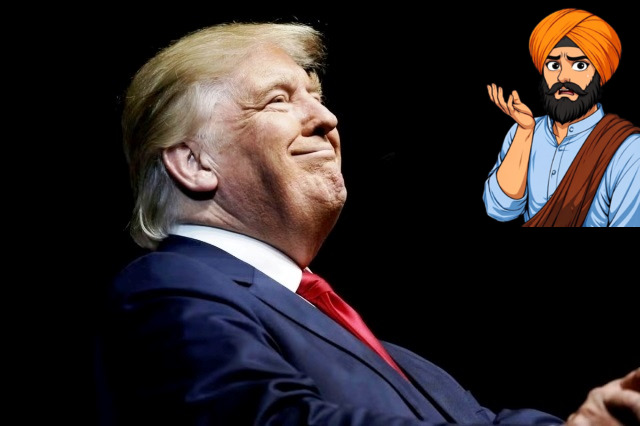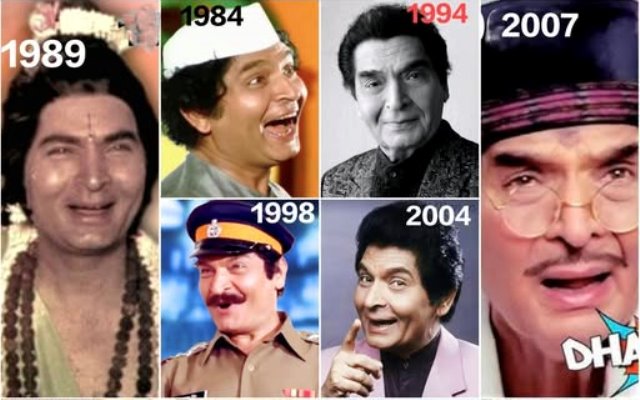
Can Kamala Harris Turn Euphoria Into Votes?
To see how sharply politics has polarised America, you only need to compare the highlights of the national conventions by each of the nation’s two political parties, the Democratic Party and the Republican Party. Unlike in many other countries, these two parties have dominated US politics since the mid-1880s. At their national conventions, held recently, each party officially confirmed its nominees who are contesting this Presidential election. On the Democratic ticket, it is Kamala Harris, the sitting US vice-president, and on the Republican ticket, it is former President Donald Trump.
The main purpose of the conventions, held every four years (which is the term of a US President), is to officially nominate a candidate but the larger effect that these usually splashy, multi-day affairs have is the demonstration of strength, power, and the popularity that the optics of these events provide. The Republican convention was held in July at Milwaukee in the middle-American state of Wisconsin; the Democratic convention was held last week in Chicago.
The contrast between the two couldn’t be starker.
To Indian voters, the US’ two-party system as well as the way the US elects its President (it is determined by a popular vote as well as an electoral college) can seem counter-intuitive. After all, India has six national political parties, 57 regional state parties, and 2,764 unrecognised but registered political parties. All registered parties contesting elections need to choose a symbol from a list of available symbols offered by India’s election commission. Americans would likely have as much trouble wrapping their heads around that system as Indians have to do so with theirs!
Yet, in some ways, the US two-party system can make it easier to discern the growing divisiveness and political polarisation in the US. To get a sense of that, the events, speeches, and, importantly, the mood at each of the conventions can be good indicators.
Jubilation and Accusations
At the four-day Democratic national convention, the mood was palpably upbeat. That is significant because till recently, the mood among Democrats was markedly low. Earlier this year, when the campaigning by both sides began, the Democratic candidate was sitting President Joe Biden and his Republican opponent was Trump. Most polls then showed Trump leading Biden, albeit by a small margin.
Things changed on July 21 when Biden decided to drop out of the race and endorsed vice-president Harris instead. Since then Harris, a woman with Indian and Jamaican ancestry, has clawed back in the approval ratings and now enjoys a small lead over Trump.
At her party’s convention, attended by 7000 delegates and telecast to millions nationally, a spirit of overwhelming euphoria prevailed. Speeches endorsing Harris were made by Biden, and two former Presidents, Barack Obama and Bill Clinton, as well as a star-studded list of politicians and celebrities. Many who attended or watched found the speakers to be articulate, powerful, and inspiring. Harris’ own speech, as well as that of her running mate, Tim Walz, talked of hope and change and a more just and egalitarian future that would enhance the lives of all men and women without discrimination.
Showbiz and Hollywood has usually backed the Democratic Party and, at the event, personalities such as talk show host Oprah Winfrey spoke, and singers such as Stevie Wonder, John Legend, and Pink performed. There was a strong emphasis on race and gender equality, especially by former first lady Michelle Obama, and several other black and women speakers.
In contrast, at the earlier held Republican convention, which was equally well-attended, it was more form than substance. Trump and his running mate delivered speeches that often seemed like rants and personal attacks. Guest speakers were mainly white and included Hulk Hogan, a retired professional wrestler who indulged in raucous histrionics that included tearing off his shirt to reveal a Trump tank top that he was wearing underneath, and singer Kid Rock who has publicly affirmed his support for Trump and his policies.
At the Republican convention, which was held while Biden was still the nominee for Democrats, the focus was on inflation, immigration, and America’s role in ongoing wars in Ukraine and the Middle East. The general line was that the Biden administration had failed to check what, according to Trump, in the influx of millions of illegal immigrants who are mostly criminals and stealers of American jobs; that it had allowed inflation to soar; and that it was spending billions of dollars on international crises that the US should keep out of. In other words, garden variety xenophobia and nationalist populism.
Mainstream Media Bias
To outside observers who glean their information from the US mainstream media to form their impressions and opinions, it could seem as if the US is heading for a Harris regime and that hope, optimism, and joy (an emotion that is associated with Harris’ bubbly personality) will prevail.
Conditioned by a predominantly pro-Democratic (and more particularly, anti-Trump) mainstream media, many Americans appear to believe that too. They think voters will choose Harris’ promises of delivering a government that treats all Americans equally and looks at issues such as abortion laws and women’s rights from a liberal point of view. And that they will reject Trump’s promises of deporting millions of immigrants, slashing taxes, and levying big tariffs on imports from countries such as China.
The problem is that this is a view conditioned by the kind of coverage that the election campaign is getting from traditional media. In the US, most leading media outlets, newspapers as well as TV channels, are pro-Democrat. In a two-party system, this sort of a bias can have adverse consequences. First, it can constrain objective reportage or analysis. But more importantly, it can provide an inaccurate picture where readers and viewers find themselves in a silo where contrarian views, opinions and perceptions are largely missing. Thirdly, it can create a bubble with the perceptions of the people who are within it quite at odds with the actual reality.
It’s a folly that is not new. In the run-up to the 2016 election, the discourse in US mainstream media had largely dismissed the possibility of a Trump victory. Yet, he defeated the Democrat candidate Hillary Clinton and became the 45th President.
Observers often form their impression about America from what is happening in the big cities of the east and the west coast: the political buzz and the people’s pulse in cosmopolitan cities such as New York, Washington, Chicago, Los Angeles and other major urban centres. Yet, what happens between the coasts in what is sometimes referred to as Middle America goes unobserved. Trumpmania is most prevalent there.
Then again there are questions of values. America has come a long way from an age where racial discrimination or gender bias was widespread but has it traversed enough ground? Many wouldn’t be so sure. In some of his speeches, ostensibly trying to woo the Black American voters, Trump has referred to how illegal immigrants are stealing “Black jobs”.
That statement itself can be seen to reek of racism. In her speech at the Democratic convention, Michelle Obama pointedly referred to it when she asked: “Who’s going to tell him that the job he’s currently seeking might just be one of those ‘Black jobs?’”
Yet, among Trump’s traditional supporters as well as among some of his new supporters, including Black working class voters unhappy with the establishment, “Black jobs” can resonate, particularly when immigration is widely seen as a big problem affecting their lives.
Likewise, among many American voters, the idea of having a woman from an ethnic minority community as President could still be too radical despite the fact that 51-53% of registered voters are women.
Traditionally, national conventions are believed to have little impact on how the average American votes. Typically, they are congregations of the loyal. The real grind begins after the conventions are over when both sides have to drive their campaigns to get popular votes as well as that of the electoral college. How things go in some swing states also determine who could eventually win. This year, a handful of America’s 50 states, Georgia, Arizona, Nevada, Wisconsin, Pennsylvania, Michigan and North Carolina, will be the decisive states where the contest is likely to be close.
Last weekend, the average of several polls showed Harris leading with 48.4% support of those surveyed, while Trump trailed with 45.3%. That is still quite close. With around 70 days left for the election on November 5, things could indeed change but what is most likely is a contest that will eventually go down to the wire.
For more details visit us: https://lokmarg.com/



